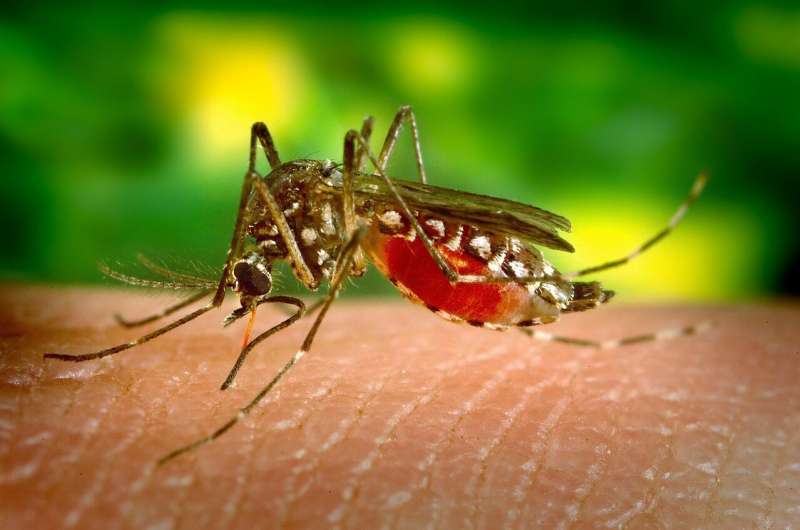Researchers identify novel host-based target against multiple mosquito-transmitted viruses

New Cleveland Clinic research shows how mosquito-transmitted viruses—like Zika, West Nile, Yellow Fever and dengue viruses—hijack host cells to promote their own replication and infection. Published in Cell Host and Microbe, a recent study from the laboratory of Michaela Gack, Ph.D., Scientific Director of Cleveland Clinic's Florida Research & Innovation Center, opens the door to developing new therapeutics for flaviviruses, a class of viruses for which either no or very limited treatments currently exist.
"Our findings bring us one step closer to understanding and treating currently untreatable mosquito-transmitted pathogens, which are an ever-increasing threat to global human populations," says Dr. Gack. "Our commitment to studying viral pathogens and host enzymes in novel ways may ultimately help us develop new, effective treatments to prevent future threats to human health."
Dr. Gack is a noted expert and core member of the Sheikha Fatima bint Mubarak Global Center for Pathogen & Human Health Research, which was founded with the goal of preventing and protecting against public health outbreaks before they start.
A hostile takeover by the virus
Viruses cannot survive on their own. While they contain their own genetic material, they don't carry all the genes or factors they need to live and reproduce. That's why viruses infect hosts—they hijack mammalian cells to turn them into virus-making factories.
To take control of the infected host cell, Zika virus, for example, hijacks several proteins inside the cell for its efficient replication. Humans have many enzymes that "tag" proteins with other molecules allowing them to function properly. Since Zika virus is missing certain molecules necessary for its reproduction, it has evolved to utilize a human enzyme called KAT5γ (an acetyltransferase) which helps the virus to amplify its RNA genome in viral replication complexes.
Treating the untreatable
The discovery of KAT5γ's critical role in flavivirus replication is the key first step in beginning to design inhibitory molecules to stop viral replication and treat infection.
"Viruses mutate so much that drugging them directly might lose effectivity over time—this is what is known as antiviral drug resistance. Human proteins don't change rapidly," explains the study's second author Cindy Chiang, Ph.D. "Targeting the host's KAT5γ protein should be much more effective in the long term to treat these viruses."
The study's findings suggest that creating drugs targeting the human KAT5γ enzyme might help target not only Zika, but also several other mosquito-transmitted flaviviruses.
More information: Taryn Serman et al, Acetylation of the NS3 helicase by KAT5γ is essential for flavivirus replication, Cell Host & Microbe (2023).
Journal information: Cell Host and Microbe , Cell Host & Microbe
Provided by Cleveland Clinic

















